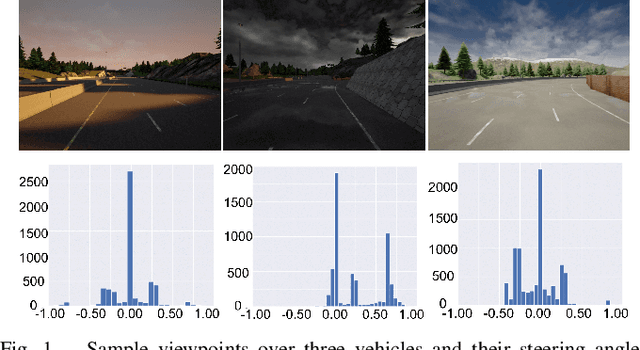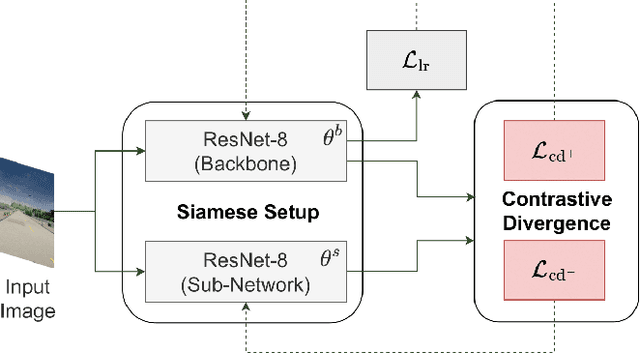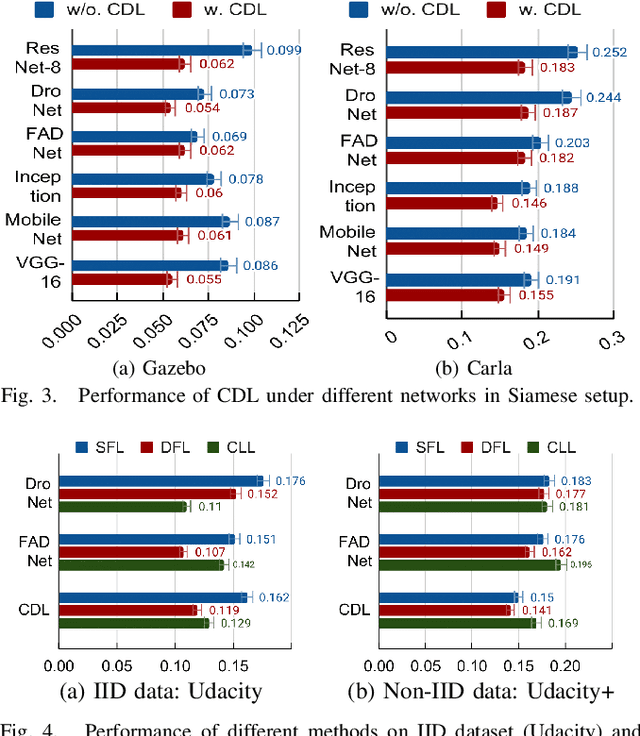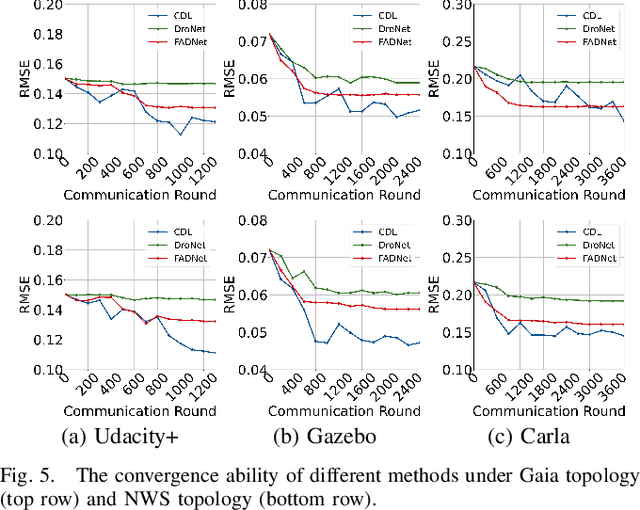Addressing Non-IID Problem in Federated Autonomous Driving with Contrastive Divergence Loss
Paper and Code
Mar 11, 2023



Federated learning has been widely applied in autonomous driving since it enables training a learning model among vehicles without sharing users' data. However, data from autonomous vehicles usually suffer from the non-independent-and-identically-distributed (non-IID) problem, which may cause negative effects on the convergence of the learning process. In this paper, we propose a new contrastive divergence loss to address the non-IID problem in autonomous driving by reducing the impact of divergence factors from transmitted models during the local learning process of each silo. We also analyze the effects of contrastive divergence in various autonomous driving scenarios, under multiple network infrastructures, and with different centralized/distributed learning schemes. Our intensive experiments on three datasets demonstrate that our proposed contrastive divergence loss further improves the performance over current state-of-the-art approaches.
 Add to Chrome
Add to Chrome Add to Firefox
Add to Firefox Add to Edge
Add to Edge